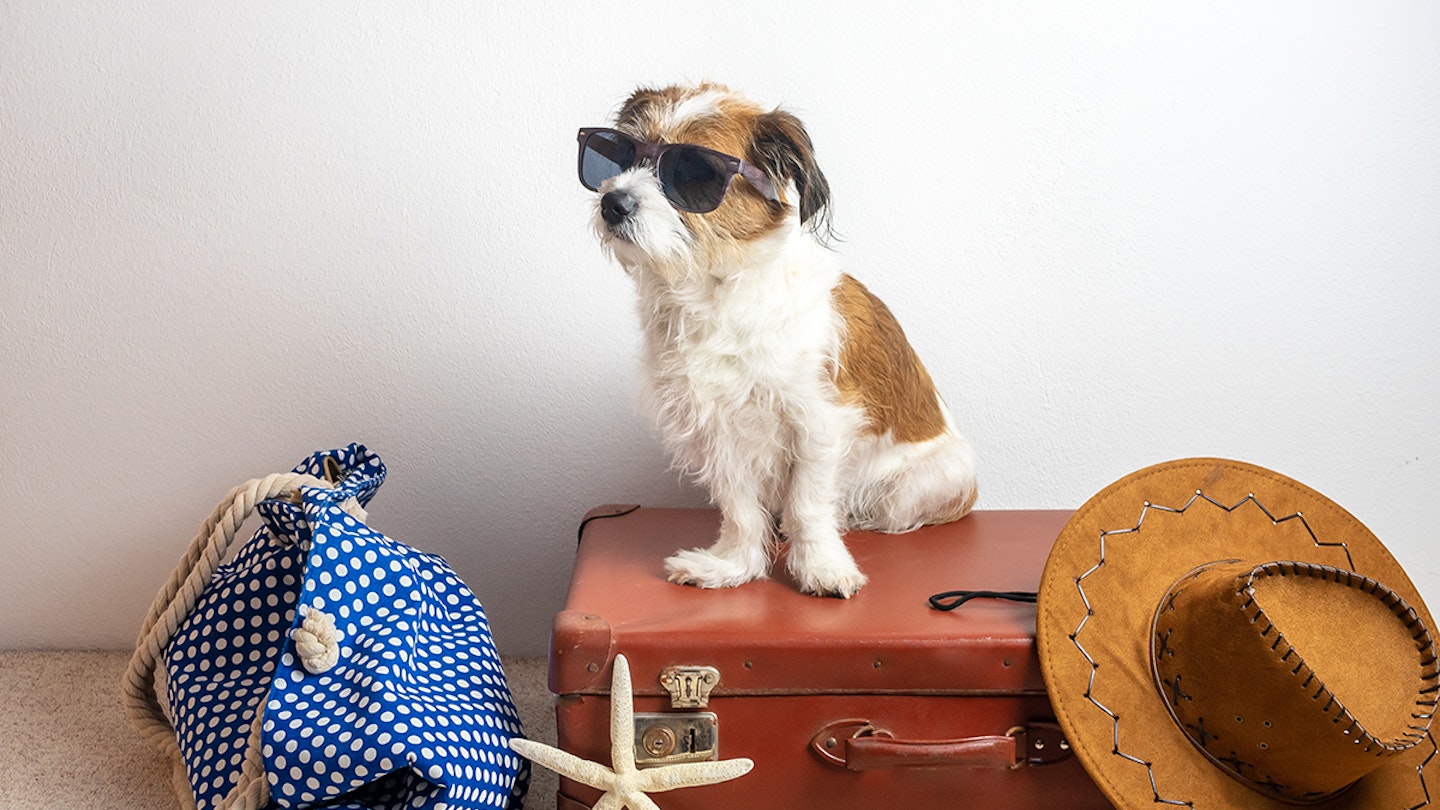Travelling in a post-Brexit world can be complicated enough but travelling with pets can be even more complicated, so we asked the vets at ManyPets for their pet travel tips.
From a pet travel checklist to essential vaccine information, plus a few other questions pet parents often have relating to travel, we have everything covered below!
What should we think about when travelling with pets?
It is the pet parent’s responsibility to check all the requirements needed before travelling with a pet.
If heading abroad, check out all the information about required vaccines, potential quarantine periods and local rules.
There are also specialist pet travel experts that may be able to handle all of the pet’s travel needs.
What to remember when travelling with pets:
• Your veterinary practice contact information
• Your pet’s identification including:
- Its owner's name, current home address and home phone number
- Owner's local contact phone number and address
- Contact information for your accommodations (hotel, campground etc)
- A current colour photo
- An ID tag
- The pet microchip registration is updated with your current contact information including a mobile phone number.
• Your pet’s medical records including:
- Current copies of your pet's medical records including pre-existing conditions and medications (especially when re-locating or travelling out of the country).
- A certificate of veterinary inspection (health certificate) including:
- Proof of vaccinations against rabies and other illnesses
- Requires an examination by a licensed and accredited veterinarian to make sure the animal is not showing signs of disease.
- An acclimation certificate for air travel (this is only required by some airlines, so check to see if your airline requires this).
• Any prescribed medications (adequate supply for the entire duration of the trip and several days' surplus supply, just in case)
• Some items for your pet’s comfort
- Collar, leash, harness
- Crate
- Bed/blankets
- Toys
- Food and cool, freshwater
- Food and water dishes
- First Aid Kit for your pet
Travelling with pets in Europe
Since Brexit, it’s still possible to travel to the EU with a pet but the process has changed.
Pet owners from England, Scotland and Wales can travel within the EU's borders with their pets by obtaining an animal health certificate (AHC).
You need to get a new certificate each time you travel with your pet, and you must obtain it within 10 days of your departure date. It costs between £100 and £150.
Countries such as Ireland, Finland, Malta and Norway can have different rules and ask for more health certificates so make sure to check the rules of a country before travelling with your pet.
Is ‘Kennel Cough’ a necessary vaccination if I don’t put my dogs in Kennels?
When going away, you may consider putting your dogs in kennels. Although Kennel Cough, as the name suggests, is spread more often in kennels, it is a highly contagious disease that is airborne and any direct dog-to-dog contact can spread the disease.
As such, Kennel Cough can be caught on walks with other dogs and can also be spread via fomites (objects that are contaminated with nasal secretions or saliva), such as sharing toys or bowls.
Like the common cold or flu in humans, the vaccine is not 100% effective against all strains of kennel cough so it’s still possible for a vaccinated dog to get kennel cough, although their symptoms are milder.
Can your pet get hay fever?
Dogs can get hay fever just like their owners. While in humans, we expect to see itchy eyes, runny nose and sneezing, dog's hayfever usually presents as skin irritation. Your dog may have hay fever, if, in the spring and summer, you notice their skin looks red, sore, or flaky around their paws, eyes, ears, mouth, abdomen, legs and around their bum.
Cats are also prone to hayfever and like dogs, their symptoms present typically in skin irritation issues. Your cat may be suffering from hay fever, if they too in the spring and summer months, excessively scratch themselves, sore or missing patches of fur on the face or neck, chewing at the paws or snoring (caused by an inflamed throat).
Never give your pet hayfever / allergy medication intended for human use. Top tips for helping your pet include wiping down paws and muzzles with a clean damp cloth after coming inside from a walk or the garden. This can be beneficial for sensitive dogs as it reduces the allergen burden on the skin and coat). Washing your pet can be a great part of its routine but try to minimize how often you give them a full wash or hose down as it can remove natural oils from the skin which are an effective barrier/protection to allergies and irritations.
Read more popular articles
Dog car safety harnesses and other ways to travel with your pooch
